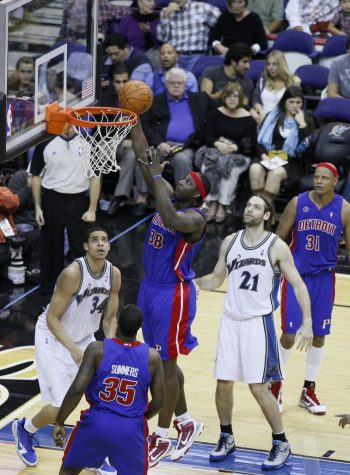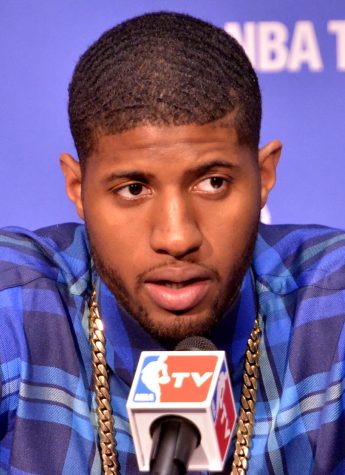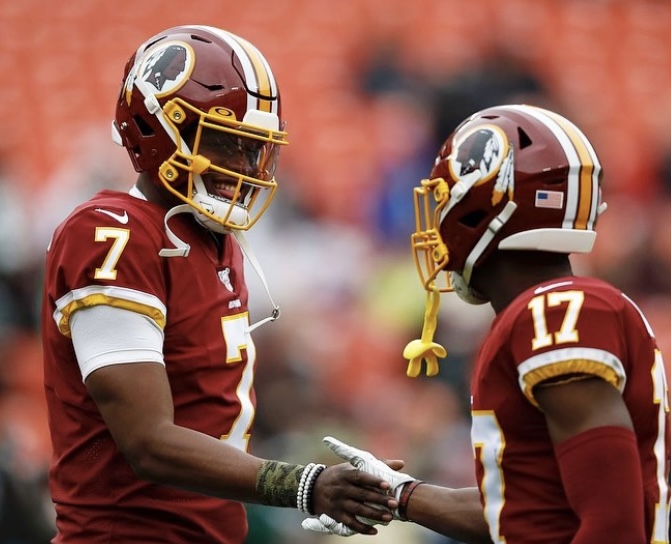Adam Schefter has been reporting on the NFL since 1990. After slowly rising up the ranks since then, he has become one of the most prolific sports journalists in the world, often breaking the news of important moves around the NFL. In fact, he recently signed a contract with ESPN, worth 9 million dollars, as an official NFL insider. However, when Schefter reported on the death of quarterback Dwayne Haskins, he made one of the biggest mistakes of his entire career.
In his tweet announcing Haskins’ death, Schefter referred to Haskins as “a standout at Ohio State who struggled to catch on in Washington and Pittsburgh,” alluding to his struggles to live up to expectations while playing in the NFL. Schefter owned up to the insensitivity of his tweet and apologized on his podcast. But while his apology was sincere, this tweet highlights one of the major issues with sports media and sports discourse: the dehumanization of professional athletes.
Dwayne Haskins is a prime example of this. When he was drafted by the Washington Commanders (Redskins at the time), Haskins was seen as the franchise quarterback who would turn around a struggling Washington organization that had been festering in mediocrity under the ownership of Dan Snyder. This was immense pressure for anyone, especially for someone as young as Haskins.
Haskins failed to pan out for Washington and was promptly released after only starting 13 games for the team. During his time on the Commanders, Haskins was constantly criticized by fans and media alike for his play and was labeled as a poor leader. As a fan of the Commanders, even I am guilty of this. It disappointed me watching Haskins play, and while I held out hope for his career in the future, I was glad when the team decided to release him.
However, what many fans and even Schefter failed to realize, is that Haskins was so much more than a football player.
Haskins was a teammate, husband, brother, and son. Only when you begin to read the messages from Haskins’ friends, and families do you even begin to understand who he was.
“He was a man trying to become the best version of himself, just like we all are,” said Terry McLaurin, a teammate of Dwayne Haskins both in the NFL and in college. “He was a guy who wanted to see the ones around him win and have success.”
While this statement may sound obvious to many, we talk about athletes as if they don’t exist outside of their sport or brand. To sports pundits, athletes are someone they can criticize, and spout takes on in order to get more clicks. On the other hand, fans may only know athletes as someone on their favorite team or someone they may have on their fantasy team. Even if athletes are now better equipped to interact with their fans through social media, it’s hard for us to even picture athletes as people who live actual lives and struggle with the issues just like us.
A prime example of sports media dehumanizing athletes is the interactions between NBA player Kwame Brown and famous sports talk show host Stephen A. Smith. Brown was the number one overall pick in 2001, drafted straight out of high school. Brown was unable to make the transition and was constantly mocked for his poor play. His most famous critic was Smith.
Smith is famous for his passionate rants about football and basketball, but one of his most infamous moments was his reaction to a trade Brown was involved in, calling him a “bonafide scrub.”

This was not an isolated incident, as Smith would talk about Brown incessantly on his show “First Take.” In fact, while researching for this article I found a seven and a half minute compilation of Smith hating on Brown.
While the videos may be funny, it’s important to remember that Brown was a kid who was forced into the league at a young age, and the constant mockery he faced at the hands of reporters like Smith took a toll on him. Yet no one felt for Brown simply because he could not play basketball at the level others believed he could.
“You [Smith’s co-host Skip Bayless] was letting this punk talk about a teenager … I had to endure you talking about my momma son like that,” Brown said in an Instagram live regarding Smith’s coverage of him.
Sports fans are also not innocent of this behavior either, which was seen in the treatment of Paul George during the 2020 playoffs. Unlike Haskins and Brown, George was a proven superstar. He had battled Lebron James’ Miami Heat superteam for the Eastern Conference title, been an MVP candidate, and had even come back from a gruesome ankle injury to continue playing at an elite level.
However, during the 2020 playoffs in the NBA bubble, George struggled and played some of the worst basketball of his career. NBA twitter began to call him “Pandemic P,” mocking him for the previous nickname “Playoff P” George had given himself before. This began to take a toll on George mentally, who was away from his family and felt he could not escape basketball and his poor play.
George told NBA reporters, “I underestimated mental health, honestly. I had anxiety and a little bit of depression. Being locked in here, I just wasn’t there. I checked out.”
George continued to play worse and worse, culminating in the Los Angeles Clippers blowing a 3-1 lead to the Denver Nuggets. Thankfully, George bounced back the next season and even led the Clippers to the Western Conference Finals in 2021 for the first time in franchise history without the help of his costar Kawhi Leonard. Still, this does not make what George went through remotely okay.

With all this in mind, how should sports media and fans move forwards when discussing professional athletes?
While sports media should remain critical of athletes’ performances, journalists must make sure their criticism of athletes only goes as far as their play and should not get personal to the levels of Smith’s attacks on Brown. It’s also important for journalists to recognize the positive aspects of athletes’ personal lives whenever possible to remind sports fans that athletes are more than just players.
Finally, regarding sports fans, while it is absolutely fine to laugh at memes joking about a player’s performance or even get passionate or upset about your favorite team’s shortcomings, remember that the athletes you are talking about are people too. They have friends and families just like you, and they struggle with the same issues you may struggle with as well.
By recognizing the humanity of athletes, we can make sports discourse less toxic and more accommodating to professional athletes.












